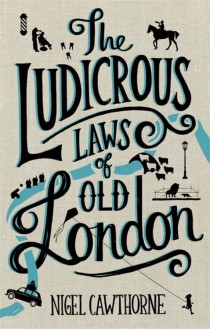
Quick: name the 4 American territories that aren't Puerto Rico.
I'm betting my BookLikes friends are the most likely to know some of them, but probably not all of them. Of the 5 populated territories, I knew of 4, although I couldn't have reeled them off on command; 1 (Northern Mariana Islands) was completely new to me.
Now, how many of us could speak knowledgeably about what it means to be a territory of the US? Are they citizens? Can they vote? Do they pay taxes? Does the US Constitution apply to them? Answers: Yes, except American Somoa. Not for president, although they can vote in presidential primaries. No. Yes, but only some of it - the parts that Congress arbitrarily decides to apply.
Sounds all kinds of screwed up, doesn't it? What's more screwed up though is that I knew almost none of this, and most Americans don't either. That's what prompted me to buy this book - it's embarrassing not to know this stuff about my own country, especially living overseas and being asked by people: what's the deal with Guam? and having to respond um... it's an island?
Doug Mack is a travel writer with a degree in American Studies, and he didn't know either, but he decided to dig into the issues that make the territories not states and try to find out why they've so completely fallen off the radar of almost all Americans, including our politicians (a congressman introduced the American Samoan representative as being from American Samolia - and massacred the man's name). Mack visited each of the 5 territories himself, talking to whomever he could, researching their cultures and searching out the very little written about them over the decades, and speaking to the two (2!) people in the country well versed enough in the legalities to answer constitutional questions.
The results are enlightening, horrifying, and eye-opening. Most Americans probably know about Puerto Rico's seesaw to-be-or-not-to-be-a-state, but the other territories are quite happy not being a state. Further, American Samoans - the only territory where the residents are not US citizens (they're residents, but without the green card) - are, for the most part, happy not being citizens. That's not to say there aren't extreme disadvantages and challenges for the territories, but Mack does a brilliant job illustrating just how difficult it is for them to balance being American with preserving their distinctive cultures and identities. Mack also outlines brief histories of each territory, and some of the legal precedence for why they are set up the way they are, and why it's so hard to define their place in the US. Or, you know, remember they exist.
This is a huge task and though he does it entertainingly, he does not pretend to do it comprehensively. Every part of this subject is a quagmire of questions that have no easy answers and no good solutions. But Mack's willing to give it a try, and he does it in a very readable, balanced narrative. The talking points are innumerable - MT and I have discussed this book's points until we're both hoarse - and for that alone, the author gets 4.5 stars from me. MT felt like a few questions went unanswered, and he's less than thrilled about my new enthusiasm for an American Samoa holiday (it's a seafood thing), but he's not reviewing this book, I am, and I say if you have any interest in the part of America that isn't often thought of as being part of America, this would definitely be a great place to start.


 Log in with Facebook
Log in with Facebook 










